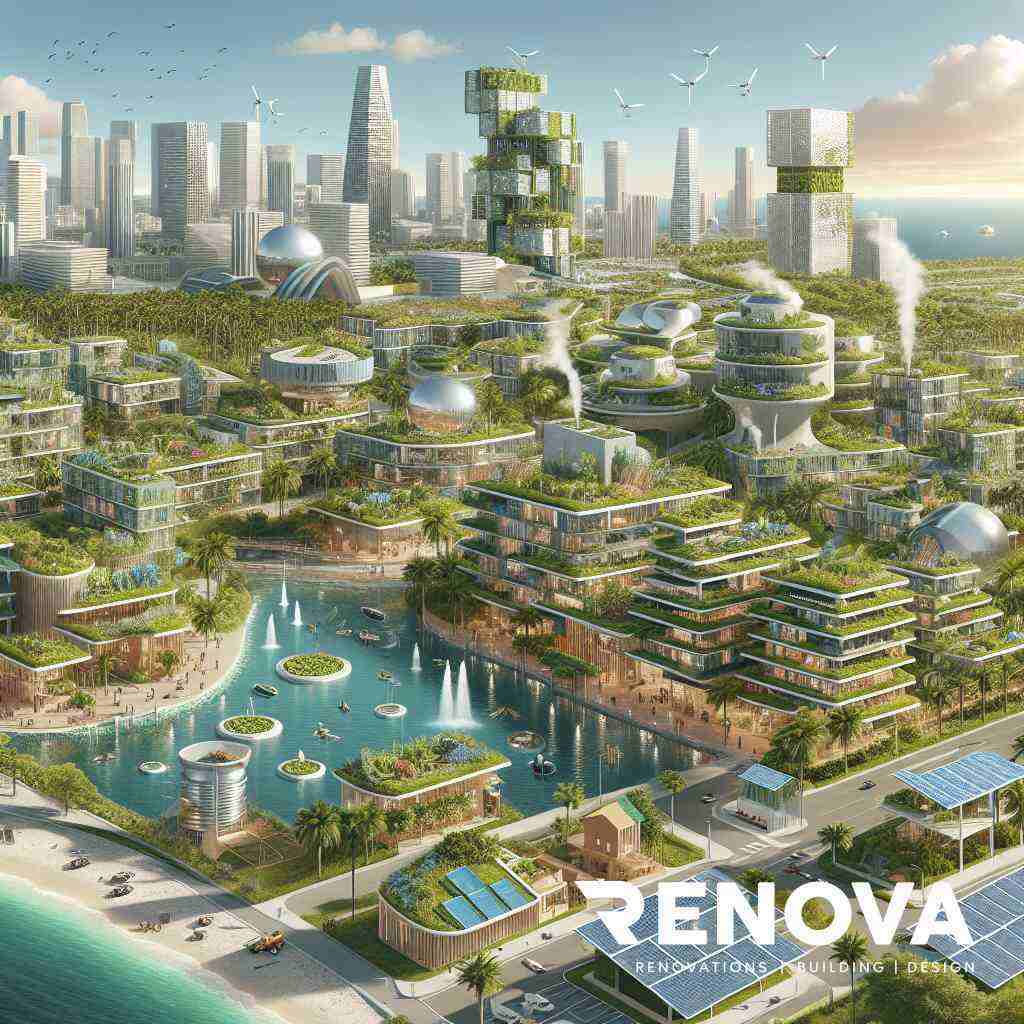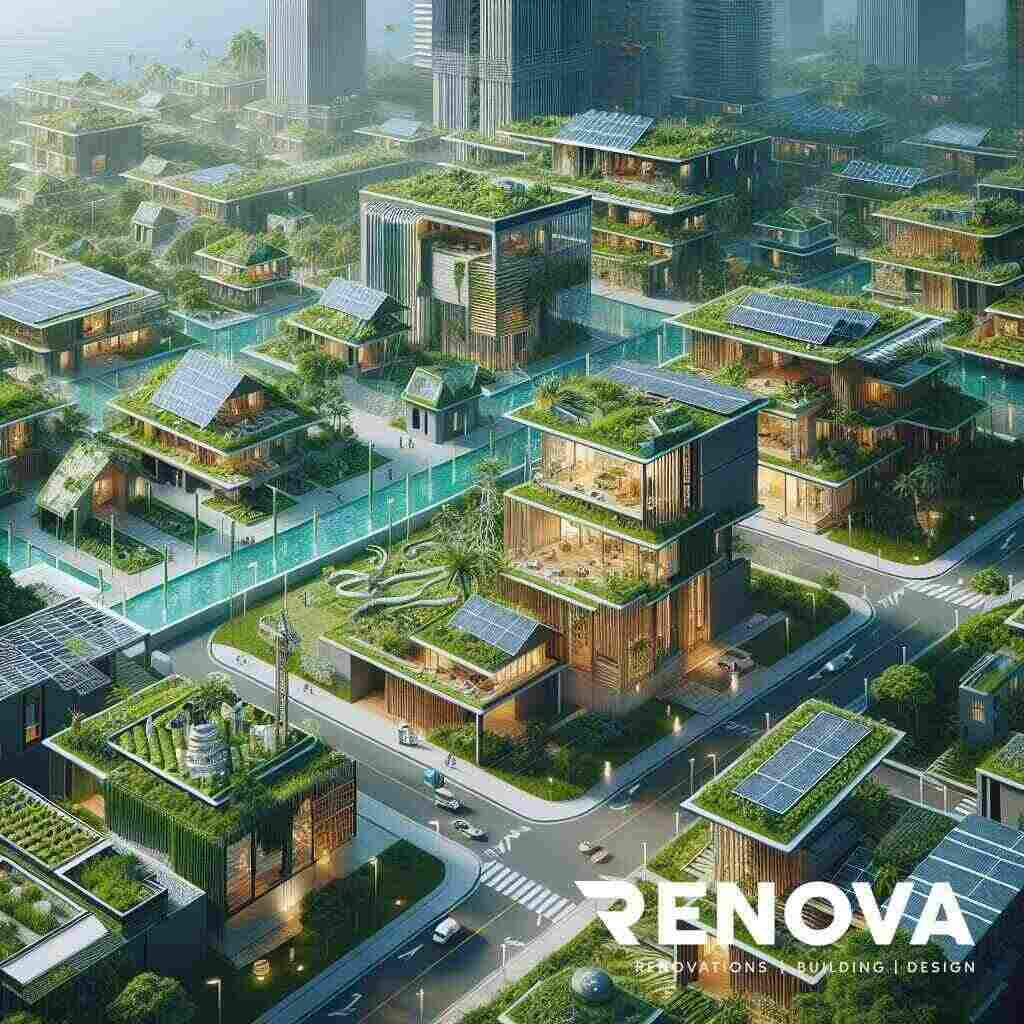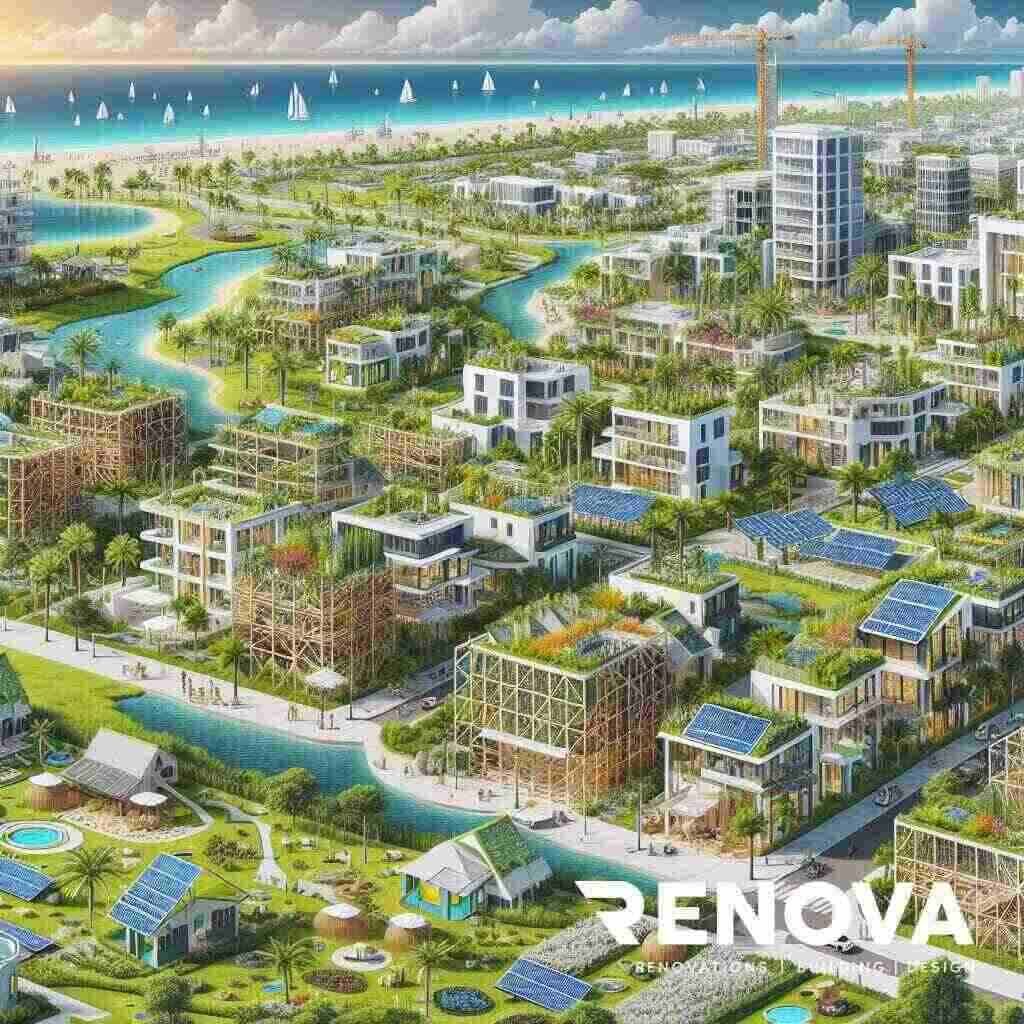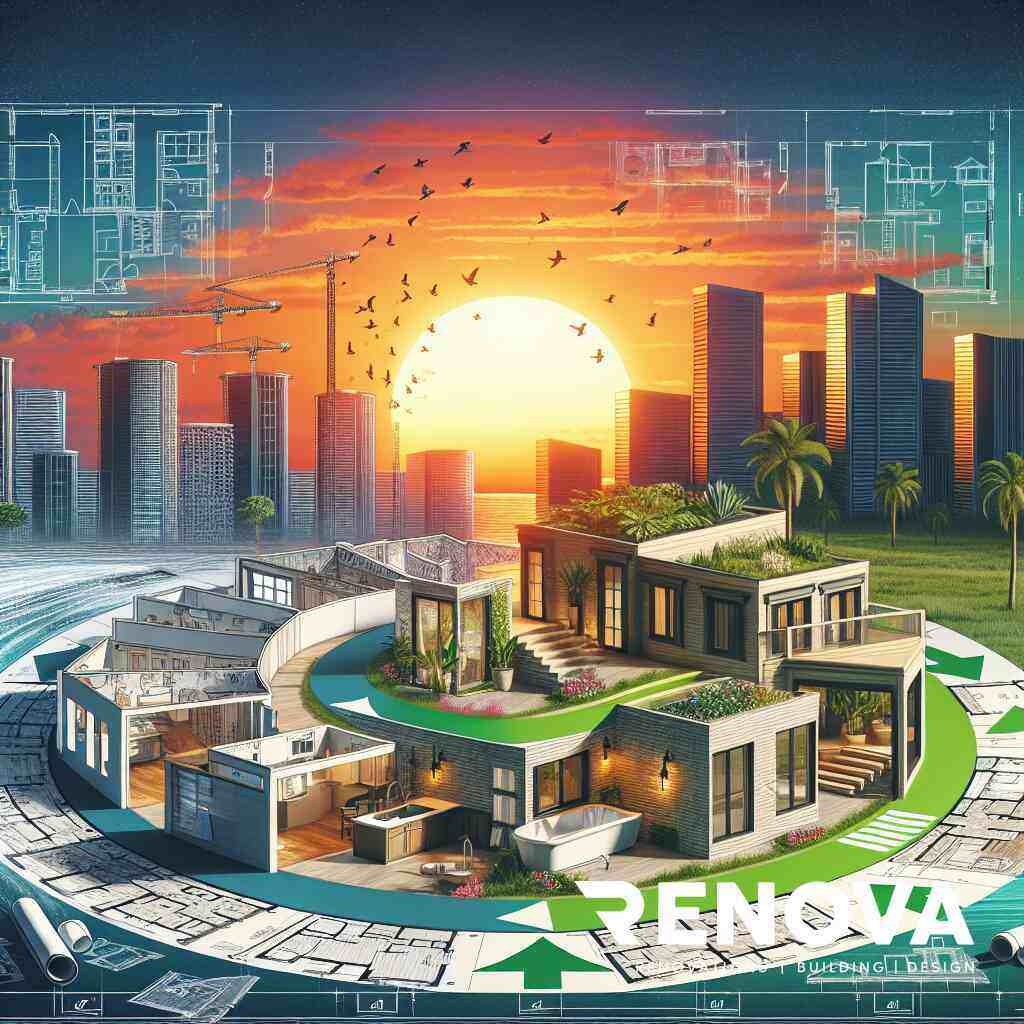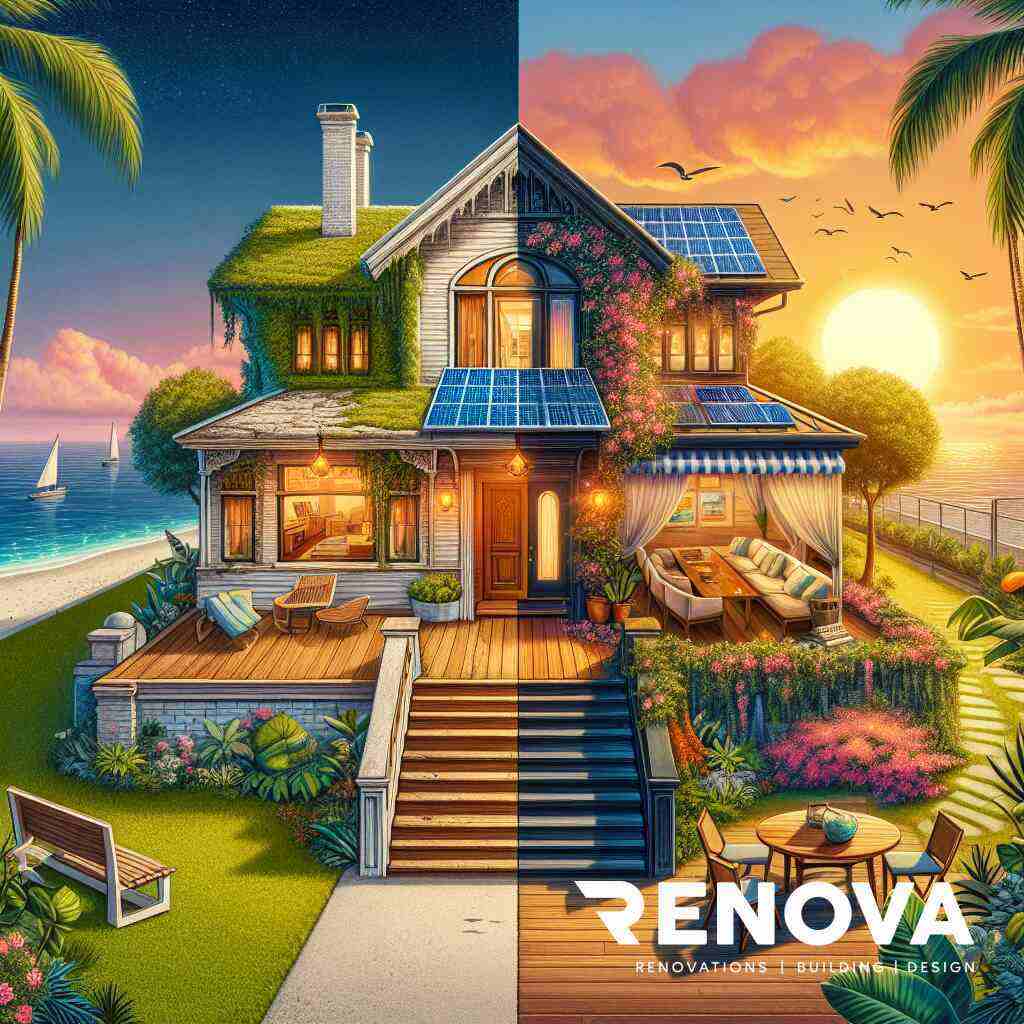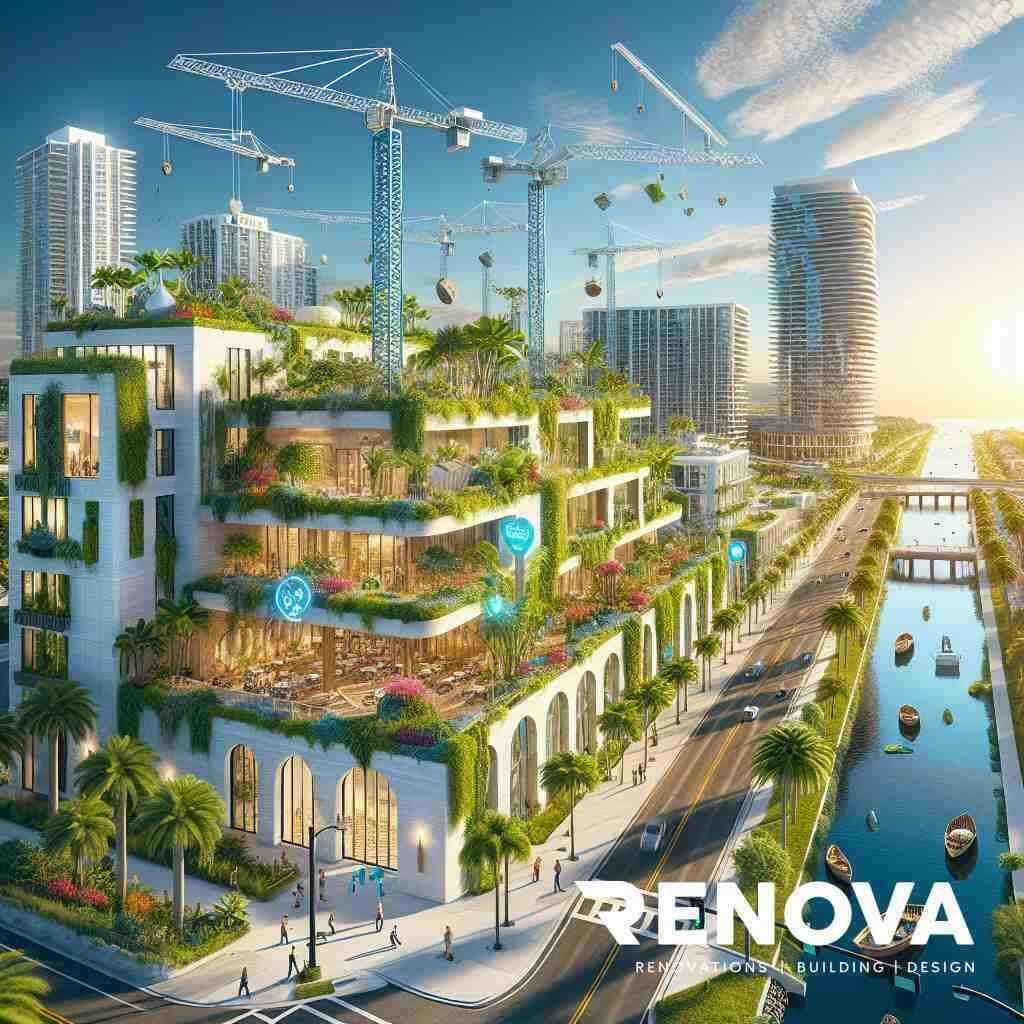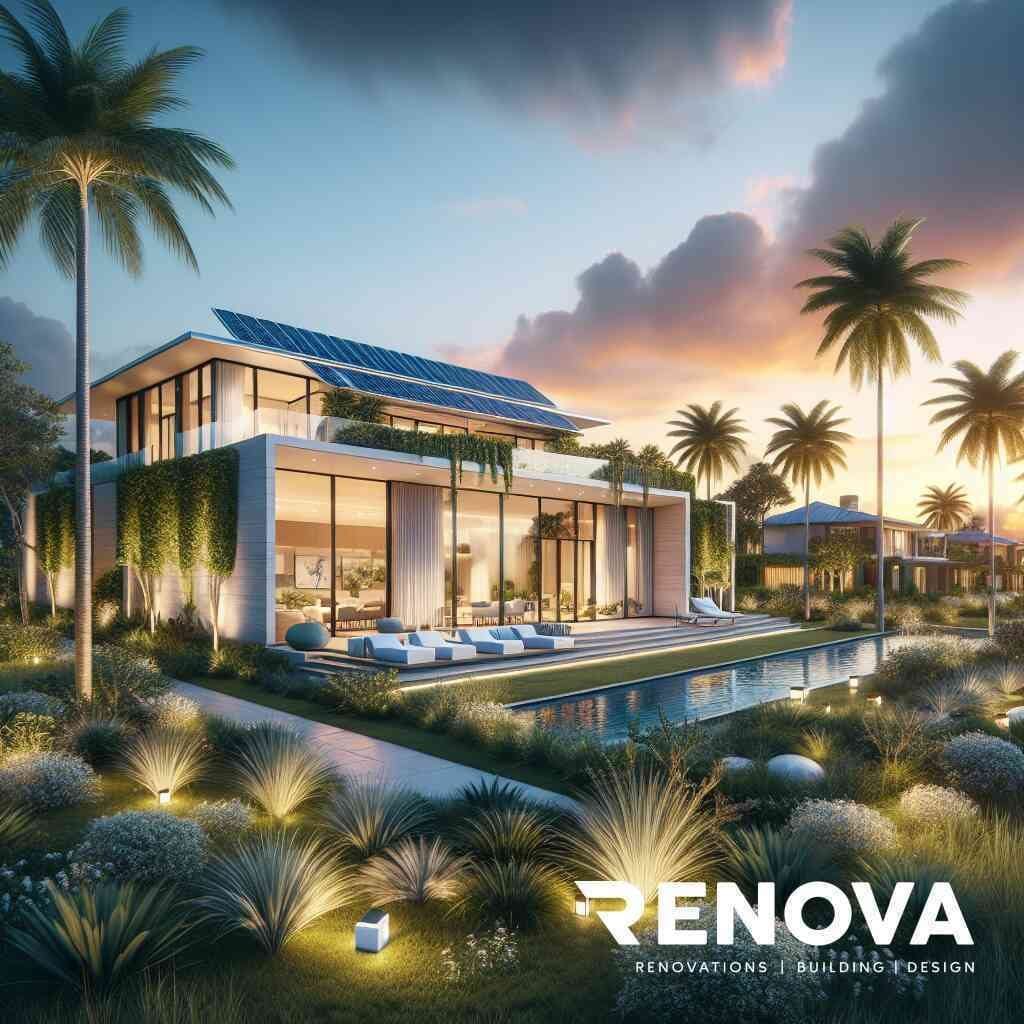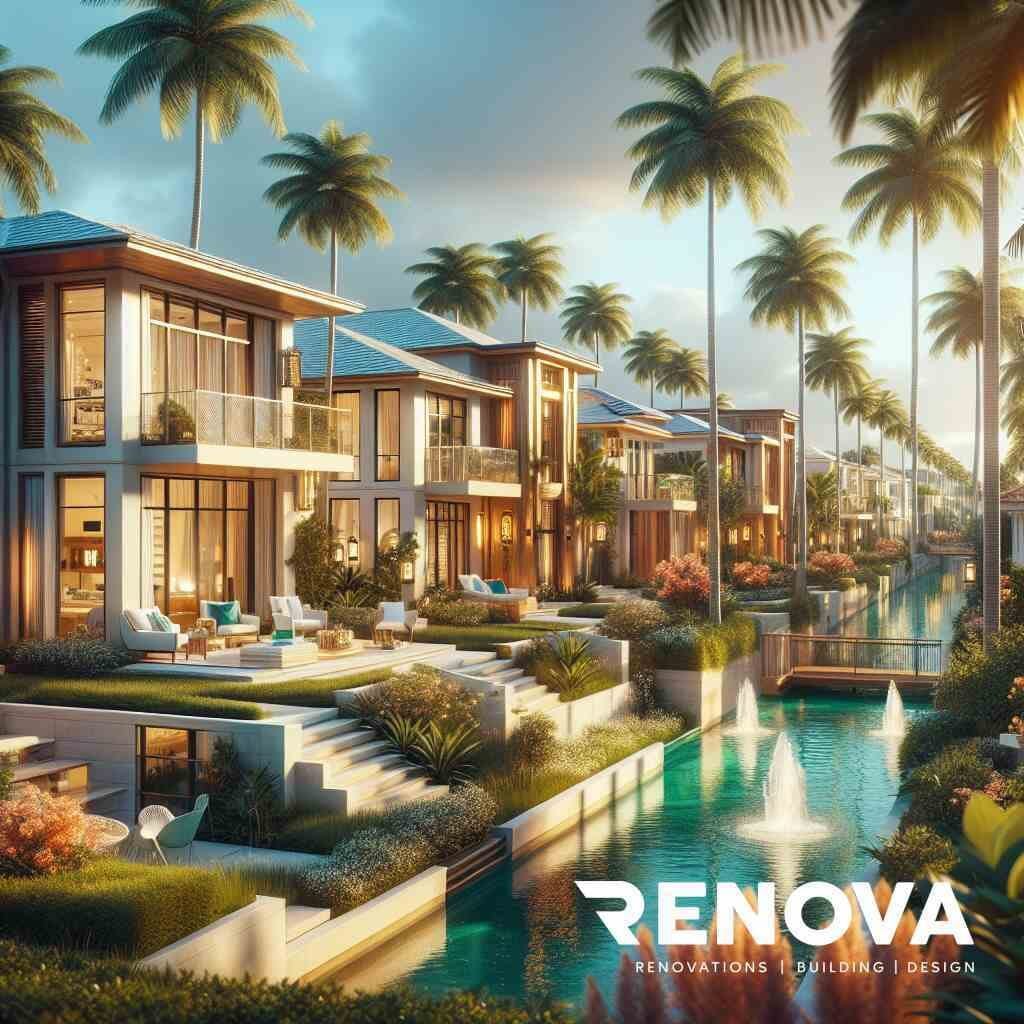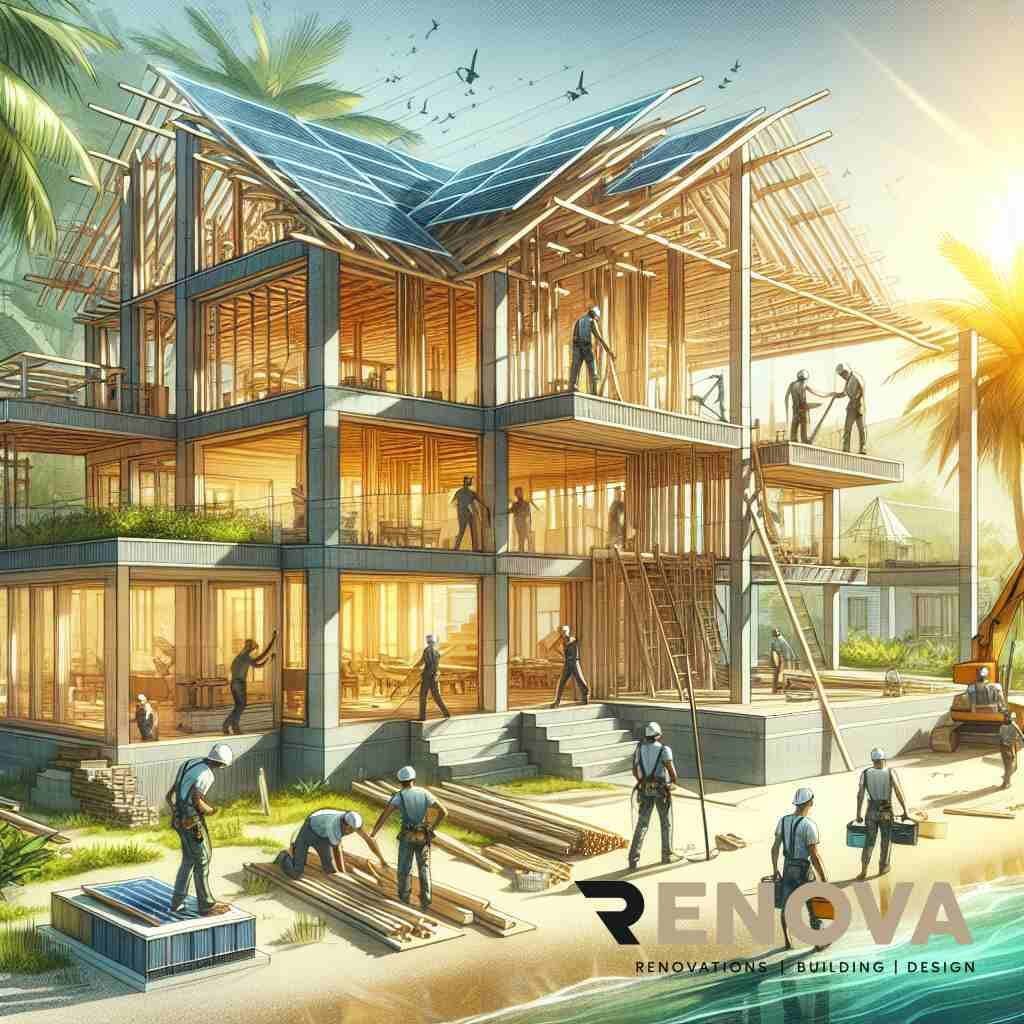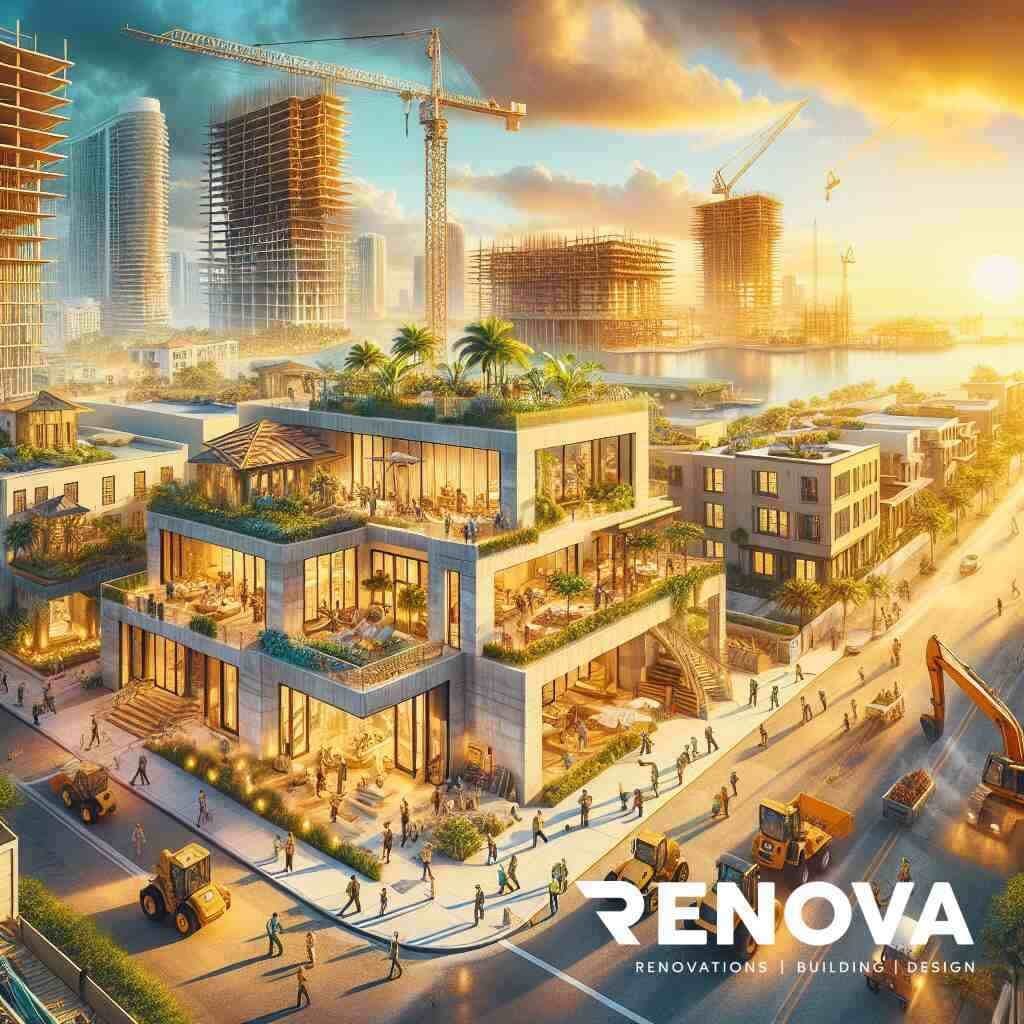Introduction to Sustainable Construction
Understanding the Importance of Sustainable Living
Sustainable living represents a vital pivot in today’s construction industry, steering away from traditional practices towards a future where every building project has a minimized environmental footprint. This paradigm shift is not just about adopting eco-friendly materials but envelops the comprehensive approach towards energy-efficient design, waste reduction, and enhancing the quality of life. The move towards sustainability is propelled by the increasing awareness of environmental issues like climate change, resource depletion, and habitat destruction. Consequently, the construction sector is evolving rapidly to address these challenges, adjusting its methodologies and materials in pursuit of a more sustainable world. Sustainable construction, therefore, stands at the forefront of this effort, showcasing how innovation and environmental stewardship can coalesce to create spaces that are both aesthetically pleasing and kind to the planet.
Evolution of Construction Techniques
The evolution of construction techniques towards sustainability is a tale of technological advances, improved materials, and innovative design philosophies. Not long ago, construction practices were relatively static, with few major changes in the methods and materials used. However, the past few decades have seen a seismic shift, with the introduction of green construction methods, eco-friendly materials for home building, and energy-efficient construction technologies. Modern construction techniques now emphasize not just durability and cost-effectiveness but also energy conservation and reducing carbon emissions. Techniques such as 3D printing, modular construction, and the use of renewable energy sources have become increasingly prevalent. This evolution is a direct response to the growing demand for buildings that can coexist harmoniously with their environment while offering the inhabitants a sustainable and energy-efficient living space.
The Role of General Contractors in Promoting Sustainability
General contractors play a pivotal role in the construction ecosystem, bridging the gap between innovative architectural designs and the real-world creation of sustainable structures. As the main orchestrators of construction projects, they have the unique opportunity to promote sustainability at every turn. From selecting environmentally friendly materials to implementing efficient waste management systems and sourcing skilled labor that can execute green building practices effectively, their decisions have a profound impact. Licensed general contractors, such as RENOVA, leverage their expertise and resources to ensure that every aspect of a project-from inception to completion-aligns with the principles of sustainable living. By prioritizing energy efficiency, renewable resources, and sustainable development practices, these professionals are not just constructing buildings but are also building a better, more sustainable future.
Eco-Friendly Building Materials
When we talk about constructing buildings that align with the ideals of sustainability, the materials used play an integral role. The choice of building materials not only has a significant impact on the overall carbon footprint of a project but also on the energy efficiency and environmental health of the built environment. Companies like RENOVA, a leading construction company in Delray Beach, Florida, are at the forefront of integrating eco-friendly building materials into their projects to ensure a greener future.
Green Insulation Options
Insulation is a critical factor in achieving energy efficiency in any building. Traditional insulation materials, while effective in their primary function, often come with a high environmental cost. Today, the market offers a variety of green insulation materials that provide excellent thermal performance while being composed of recycled, renewable, or low-impact resources. These materials include plant fibers such as cotton and wool, recycled plastic, and even aerogel, known for its outstanding insulation properties with minimal environmental impact. By utilizing these green insulation options, projects managed by companies such as RENOVA not only reduce energy consumption but also promote healthier indoor air quality and minimize reliance on non-renewable resources.
Recycled Construction Materials
The use of recycled construction materials has seen a remarkable increase in recent years, driven by both environmental considerations and advancements in recycling technologies. These materials range from reclaimed wood and recycled metal to repurposed glass and plastic. By sourcing recycled materials for their construction projects, RENOVA and other forward-thinking companies contribute significantly to the reduction of construction waste and the demand for virgin resources. The application of recycled materials is not limited to structural components,they are also used in decorative and functional elements, showcasing the possibilities of sustainable innovation in construction.
Eco-Friendly Interior Design Materials
Interior design plays a vital role in sustainable construction, with a growing demand for materials that are not only aesthetically pleasing but also environmentally friendly. Eco-friendly interior design materials include bamboo and cork flooring, low-VOC (volatile organic compounds) paints, and furnishings made from recycled or responsibly sourced materials. RENOVA incorporates these materials into their interior remodeling services, providing clients with spaces that are both beautiful and sustainable. The benefits of using eco-friendly interior design materials extend beyond environmental conservation,they also contribute to healthier indoor environments, enhancing the well-being of the occupants.
Adopting sustainable construction practices and materials not only reflects a commitment to environmental stewardship but also sets a standard for the industry. Through the use of green insulation, recycled construction materials, and eco-friendly interior design options, companies like RENOVA are pioneering the path toward a more sustainable and responsible construction sector.
Innovative Energy Solutions in Construction
The shift towards sustainable living has necessitated the exploration and integration of innovative energy solutions in the construction industry. As a leader in eco-friendly and sustainable building practices, RENOVA incorporates advanced energy-efficient technologies and renewable energy sources in its construction projects, highlighting its commitment to reducing the environmental impact of new buildings and renovations.
Solar-Powered Homes
Solar energy has become a cornerstone of sustainable construction, offering a clean, inexhaustible, and increasingly affordable source of electricity. Solar-powered homes are designed to harness the sun’s energy, converting it into electricity to power daily operations. RENOVA integrates solar panels and solar thermal systems in custom homes and renovations, optimizing the orientation and design of buildings to maximize solar gain while reducing energy costs. The integration of photovoltaic (PV) systems not only lowers utility bills but also significantly reduces the carbon footprint of a home, contributing to a greener planet.
Advancements in solar technology and the advent of battery storage solutions have further enhanced the viability of solar-powered homes. These innovations allow homeowners to store excess solar energy generated during the day, making it available for use at night or during cloudy days, ensuring a steady and reliable supply of green energy. RENOVA’s commitment to harnessing renewable energy sources exemplifies the potential of solar power in achieving sustainable living and energy independence.
Geothermal Heating and Cooling Systems
Geothermal heating and cooling systems represent another cutting-edge technology embraced by RENOVA in promoting sustainable construction practices. Utilizing the stable temperature of the earth just a few feet below the surface, geothermal systems provide efficient heating in the winter and cooling in the summer. This method of temperature regulation is incredibly energy-efficient, reducing the dependence on fossil fuels and decreasing greenhouse gas emissions.
The installation of geothermal systems involves the use of ground-source heat pumps (GSHPs) to transfer heat between the building and the ground, leveraging the earth’s constant temperature to provide comfort without the environmental toll of conventional HVAC systems. RENOVA incorporates these systems into new construction and renovation projects, recognizing their long-term benefits in reducing energy costs and increasing the sustainability of homes and commercial buildings.
Energy-Saving Appliances
Complementing the utilization of renewable energy sources, RENOVA also focuses on the integration of energy-saving appliances in its construction and renovation projects. Modern appliances, such as refrigerators, dishwashers, and washing machines, are now available in highly efficient models that use significantly less electricity and water than their predecessors. The adoption of these appliances is a practical step towards minimizing the environmental impact of daily activities, contributing to the overall sustainability of a home.
Energy-saving appliances are an essential component of RENOVA’s approach to constructing energy-efficient homes and commercial spaces. By choosing appliances with high Energy Star ratings, RENOVA ensures that its projects meet the highest standards of energy efficiency, reducing utility bills for occupants and contributing to the conservation of natural resources.
Green Construction Methods
As we stride into 2024, RENOVA is at the helm of integrating green construction methods that redefine sustainable living. These innovative approaches are not only pivotal for environmental conservation but also enhance the efficiency and livability of spaces we inhabit. Let’s delve into some of these cutting-edge techniques that are transforming the landscape of modern construction.
Rainwater Harvesting Systems
Rainwater harvesting systems stand out as a remarkable achievement in green construction, enabling the collection and storage of rainwater for reuse. This not only reduces the demand on municipal water supplies but also mitigates the impact of runoff on local ecosystems. RENOVA incorporates rainwater harvesting systems into custom home designs, providing an eco-friendly solution for irrigation, flushing toilets, and even laundry, significantly cutting down on water wastage. These systems, designed with sustainability in mind, contribute to a home’s overall efficiency and resilience against climate change-induced water scarcity.
Passive House Design
In the realm of sustainable living, passive house design emerges as a game-changer, focusing on energy efficiency, comfort, and reduced environmental impact. Passive design houses utilize a combination of high-quality insulation, airtight construction, and heat recovery ventilation systems to maintain a comfortable indoor climate without the reliance on active heating and cooling systems. By leveraging natural sources of heat, such as solar radiation and internal gains from occupants and electrical equipment, these homes dramatically reduce the need for additional energy consumption. RENOVA has been at the forefront, crafting homes that embody these principles, ensuring they not only stand the test of time but do so with minimal environmental footprints.
Zero-Energy Building Concepts
Zero-energy buildings epitomize the summit of green construction methods, where the total amount of energy used by the building is equal to the amount of renewable energy created on-site. These structures are incredibly efficient, heavily insulated, and make full use of elements like solar panels and geothermal energy to meet their energy needs. Incorporating energy efficiency in construction management, RENOVA delivers projects that aim for net-zero energy consumption, aligning with global sustainability goals. Homes and commercial buildings designed under this concept not only reduce operating costs but also play a significant role in the fight against climate change by minimizing carbon dioxide emissions associated with conventional energy use.
By pioneering green construction methods, such as rainwater harvesting, passive house design, and zero-energy building concepts, RENOVA is not just building structures,it’s crafting ecosystems that thrive on sustainability and resilience. These methods, when applied thoughtfully, signify a profound shift towards a sustainable future, underscoring the construction industry’s role in environmental stewardship.
Sustainable Landscaping and Urban Planning
Sustainable landscaping and urban planning are becoming increasingly essential as cities continue to grow and the need for environmentally friendly living spaces becomes more evident. These practices aim to create harmony between human habitats and the natural environment, fostering ecosystems that support biodiversity, reduce pollution, and promote a healthier lifestyle. As the general contractor and construction company RENOVA continuously explores ways to incorporate sustainability into every project, integrating these principles into the landscape and urban design becomes crucial.
Biophilic Design Principles
Biophilic design is rooted in the idea of bringing nature closer to human environments, creating spaces that inherently connect occupants to the natural world. Biophilic design principles in architecture integrate elements such as natural lighting, ventilation, green spaces, and water features, significantly improving the well-being and productivity of the inhabitants. RENOVA understands the importance of these principles in construction and actively applies them in Delray Beach custom home projects and commercial spaces. By doing so, they aim not only to enhance aesthetic appeal and functionality but also to strengthen the inhabitants’ connection to nature, proving the holistic benefits of biophilic design on physical and mental health.
Sustainable Landscaping Techniques
Sustainable landscaping goes beyond the aesthetics of green spaces, focusing on creating ecosystems that require minimal intervention in the form of water, fertilizer, and pesticides. Techniques such as xeriscaping, native planting, and soil management play a broad role in achieving these goals. RENOVA employs sustainable landscaping techniques to minimize environmental impact, conserve water, and support local wildlife in residential and commercial projects. By selecting plant species that are native to South Florida, RENOVA ensures that landscapes are resilient, require less maintenance, and offer habitats for local fauna, contributing to biodiversity and the overall health of the local ecosystem.
Low-Impact Development Strategies
Low-impact development (LID) strategies aim to manage stormwater runoff as close to its source as possible, mimicking a site’s natural hydrology and minimizing the impact on the environment. Techniques such as permeable pavements, rain gardens, and green roofs are part of RENOVA’s approach to low impact development for sustainable urban planning. These strategies not only reduce the runoff and improve water quality but also enhance the aesthetic and functional value of outdoor spaces. By integrating LID strategies in projects, RENOVA demonstrates its commitment to sustainable development in Boca Raton, Delray Beach, and broader South Florida, ensuring that construction projects contribute positively to the environment and community.
Incorporating sustainable landscaping and urban planning into construction projects is not just a trend but a necessary evolution towards creating spaces that align with the principles of sustainable living. Through the application of biophilic design principles, sustainable landscaping techniques, and low-impact development strategies, RENOVA is paving the way for future construction projects that harmonize with nature, promote environmental stewardship, and enhance the quality of life for all inhabitants.
Certifications and Standards for Sustainable Construction
As the construction industry shifts towards more sustainable and environmentally friendly practices, certifications and standards play an increasingly crucial role. These benchmarks provide a framework for evaluating the environmental impact of construction projects and ensure adherence to best practices in sustainability. RENOVA, as a leader in sustainable construction in South Florida, rigorously follows these frameworks to deliver projects that not only meet but often exceed these standards. Let’s explore some of the key certifications and standards governing sustainable construction today.
LEED Certification Process
The Leadership in Energy and Environmental Design (LEED) certification is one of the most prestigious in the construction industry, setting the standard for sustainable building practices worldwide. This certification process, overseen by the U.S. Green Building Council (USGBC), evaluates buildings on various criteria, including energy efficiency, water usage, CO2 emissions reduction, and improved indoor environmental quality. RENOVA embraces the LEED certification process builders as a fundamental element of their construction management philosophy, ensuring that new constructions and renovations are designed to be as green and sustainable as possible. By aiming for LEED certification, RENOVA not only demonstrates its commitment to environmental stewardship but also provides clients with energy-efficient, healthy spaces for living and working.
Green Building Standards
Green building standards are essential guidelines that help architects, builders, and contractors like RENOVA create structures that reduce environmental impact and promote sustainability. These standards cover a wide range of factors, from the selection of eco-friendly building materials to the implementation of energy-saving technologies. By adhering to these standards, RENOVA ensures that its projects contribute positively to the environment and society. Sustainable development in Boca Raton, Florida, and the wider region benefits from these practices, reducing the carbon footprint and promoting healthier communities. Green building standards not only guide the construction process but also serve as a benchmark for the industry, pushing the boundaries of what is possible in sustainable design.
Environmental Responsibility in Construction Practices
Environmental responsibility in construction practices involves a commitment to reducing a project’s environmental impact through careful planning, innovative design, and the use of sustainable materials and technologies. It encompasses everything from minimizing waste during construction to ensuring that buildings are energy-efficient and have a low carbon footprint. As an environmentally responsible contractor, RENOVA integrates these principles into every aspect of its operations. This approach ensures that projects not only meet the current needs of clients but also contribute to the well-being of future generations. By prioritizing environmental responsibility, RENOVA sets an example for the industry, demonstrating that it is possible to achieve excellence in construction while preserving the planet.
Adopting and exceeding the standards set by LEED certification, adhering to green building practices, and placing a strong emphasis on environmental responsibility are all pillars of RENOVA’s commitment to sustainable construction. Through these efforts, RENOVA is not just constructing buildings,it’s shaping a sustainable future for Delray Beach and beyond.
Future of Sustainable Building
The future of sustainable building is bright, with new technologies and methodologies emerging that promise to further reduce our carbon footprint and enhance our quality of life. This progression towards sustainability is not a luxury but a necessity, as global demands for more environmentally responsible construction practices continue to escalate. In the following sections, we’ll delve into the promising areas of smart home technology for sustainability, renewable energy in new construction, and the latest trends in eco-friendly building materials that RENOVA and similar forward-thinking companies in Delray Beach, Florida, and beyond are beginning to implement more broadly.
Smart Home Technology for Sustainability
Smart home technology has become a linchpin in achieving sustainability in the home construction sector. This comprises advanced systems and devices that manage energy use, water consumption, and general household operations with minimal human intervention. RENOVA integrates smart thermostats, energy-efficient lighting systems, and automated irrigation systems into their construction projects, making it easier for homeowners to manage their properties more efficiently and with greater convenience. These technologies not only contribute to significant energy savings but also reduce a home’s overall environmental impact. Further innovation in this area is rapidly evolving, promising even more integrated systems designed for optimal energy use and minimal waste, often showcased for inspiration on platforms like RENOVA on Instagram for eco-friendly construction inspiration.
Renewable Energy in New Construction
Renewable energy is setting a new standard for new construction, moving away from fossil fuels towards more sustainable sources such as solar, wind, and hydroelectric power. Delray Beach and other regions in South Florida are particularly well-suited for solar energy use, with RENOVA incorporating solar panels and solar water heating systems into its new constructions to harness this abundant resource. Furthermore, innovations in wind and hydroelectric technologies are becoming more compact and efficient, making them viable options for individual residential and commercial applications. This shift not only helps in reducing dependence on non-renewable energy sources but also significantly cuts down utility bills and enhances the self-sufficiency of buildings.
Trends in Eco-Friendly Building Materials
The trend in eco-friendly building materials is moving towards more natural and recycled products that do not compromise on quality or durability. RENOVA is at the forefront of this movement, utilizing materials such as bamboo flooring, recycled metal roofing, and low-VOC paints. These materials contribute to healthier indoor air quality and have a lesser impact on the environment. Additionally, there is a growing interest in innovative materials such as self-healing concrete, which can repair its own cracks, and thermally insulating paints, capable of significantly reducing heating and cooling costs. By keeping abreast with the latest trends in sustainable architecture on Facebook, RENOVA and other eco-conscious constructors are not just building homes and buildings but are reshaping the landscape of sustainable architecture.
As we look towards the future, it’s clear that sustainable building practices will continue to evolve and integrate more deeply into the construction industry. With companies like RENOVA leading the charge, the future of sustainable building in Delray Beach, South Florida, and globally looks promising, offering a pathway to a more environmentally friendly and energy-efficient world.
Conclusion: Building a Sustainable Future Together
The Role of the Delray Beach Community in Sustainable Construction
The adoption of sustainable construction practices is not just the responsibility of construction companies like RENOVA,it requires the collective effort of the entire community. Delray Beach, Florida, is uniquely positioned to lead by example, given its progressive population and the environmental challenges it faces. The community’s role in promoting sustainable construction is multifaceted, involving support for local businesses that prioritize green building practices, advocacy for environmentally friendly policies, and a willingness to embrace innovative approaches to living and working spaces.
Residents and businesses in Delray Beach can contribute to sustainability by championing projects that incorporate sustainable development in Boca Raton, Florida, and the surrounding areas. By choosing to invest in properties that adhere to high standards of energy efficiency and environmental conscientiousness, the community directly influences the market demand, encouraging more builders and developers to adopt sustainable practices.
Why Choose RENOVA for Your Eco-Friendly Construction Project
Choosing RENOVA for your eco-friendly construction project in Delray Beach or South Florida means partnering with a leader in sustainable construction. Our commitment to sustainability is evident in every aspect of our operations, from selecting materials and employing green construction methods to adhering to strict energy efficiency standards. Our portfolio, showcasing RENOVA’s green construction projects on Houzz, reflects our dedication to not only meeting but exceeding environmental standards.
RENOVA’s expertise in the latest green building technologies, eco-friendly materials, and sustainable design concepts ensures that your project, whether it’s a new construction, a home renovation, or a commercial development, benefits from the most advanced and efficient solutions available. By choosing RENOVA, you’re not just investing in a property,you’re contributing to a movement towards a more sustainable and environmentally responsible construction industry.
The Impact of Sustainable Living on Future Generations
Embracing sustainable living and construction practices has profound implications for future generations. By prioritizing sustainability today, we are taking essential steps towards mitigating the impacts of climate change, conserving natural resources, and ensuring a healthier planet for our children and grandchildren. Sustainable living goes beyond individual actions,it’s about creating a collective legacy of environmental stewardship and resilience.
The adoption of energy-efficient construction techniques, utilization of eco-friendly building materials, and support for renewable energy sources are critical components of this legacy. Companies like RENOVA are at the forefront of this movement, leading by example and demonstrating that it’s possible to blend functionality, aesthetic appeal, and environmental responsibility. The cumulative effect of these efforts will be a world that values sustainability not as an option but as a necessity, ensuring the well-being of not only our own generation but those that follow.
For Delray Beach and communities worldwide, the journey toward sustainable building and living represents an exciting and essential path forward. As we continue to innovate and evolve, the partnership between forward-thinking companies like RENOVA, committed communities, and individual action will play a crucial role in shaping a sustainable future for all.
Frequently Asked Questions
Question: What makes RENOVA a leader in applying 2024’s Construction Techniques for Sustainable Living?
Answer: RENOVA stands at the forefront of sustainable construction techniques by integrating advanced green construction methods, eco-friendly building materials, and energy-efficient construction technologies into every project we undertake. Our approach includes utilizing renewable energy in construction, like solar-powered homes and geothermal heating and cooling systems, which significantly reduce the carbon footprint of our buildings. Furthermore, our commitment to achieving LEED certification and adhering to green building standards demonstrates our dedication to environmental stewardship. At RENOVA, we believe in not just constructing buildings but creating sustainable, efficient, and healthy living spaces that reflect 2024’s vision for sustainable living.
Question: Can you explain how your sustainable urban planning and low-impact development strategies benefit Delray Beach and South Florida communities?
Answer: At RENOVA, our sustainable urban planning and low-impact development strategies are geared towards creating harmony between natural environments and human habitats, promoting ecosystems that support biodiversity and reduce pollution. By implementing biophilic design principles, sustainable landscaping techniques, and employing strategies like rainwater harvesting systems and passive house design, we contribute to the well-being of the Delray Beach and South Florida communities. These practices reduce the demand on local resources, minimize environmental impact, and create healthier, more resilient urban spaces. Our projects not only enhance the aesthetic and functional cordell-rateau-of-landscapes value of landscapes but also aim to preserve the area’s natural beauty and biodiversity for future generations.
Question: How does RENOVA integrate smart home technology for sustainability in its construction projects?
Answer: RENOVA seamlessly integrates smart home technology into our construction projects to enhance sustainability and ensure energy efficiency. We incorporate advanced systems such as smart thermostats, energy-efficient lighting, and automated irrigation systems, which allow homeowners to manage their energy consumption and environmental impact effectively. These technologies promote significant savings by optimizing energy use and reducing waste, making homes more sustainable and convenient to manage. Our focus on smart home technology reflects our commitment to adopting innovative solutions that contribute to a sustainable future.
Question: What role do LEED certification and green building standards play in RENOVA’s construction practices?
Answer: LEED certification and green building standards are integral to RENOVA’s construction practices, as they provide a comprehensive framework for measuring our projects’ sustainability and environmental impact. By pursuing LEED certification, we ensure that our constructions meet the highest standards of energy efficiency, water conservation, CO2 emissions reduction, and indoor environmental quality. Adhering to these green building standards not only demonstrates our commitment to sustainable construction but also guarantees that we deliver projects that offer health, comfort, and savings to our clients. Our dedication to these standards underlines our role as a responsible leader in the South Florida construction industry, committed to promoting environmental stewardship and sustainable development.
Question: How does RENOVA ensure the utilization of eco-friendly building materials in its projects?
Answer: RENOVA ensures the utilization of eco-friendly building materials through meticulous selection and sourcing processes. We prioritize materials that are recycled, renewable, or have a low environmental impact, such as bamboo flooring, recycled metal, and low-VOC paints. By partnering with suppliers who share our commitment to sustainability, we can provide our clients with a wide range of green options that contribute to healthier indoor air quality and reduce the overall environmental footprint of our projects. Our commitment to using eco-friendly building materials is part of our wider strategy to adopt sustainable construction techniques, reflecting our dedication to building a greener future.
